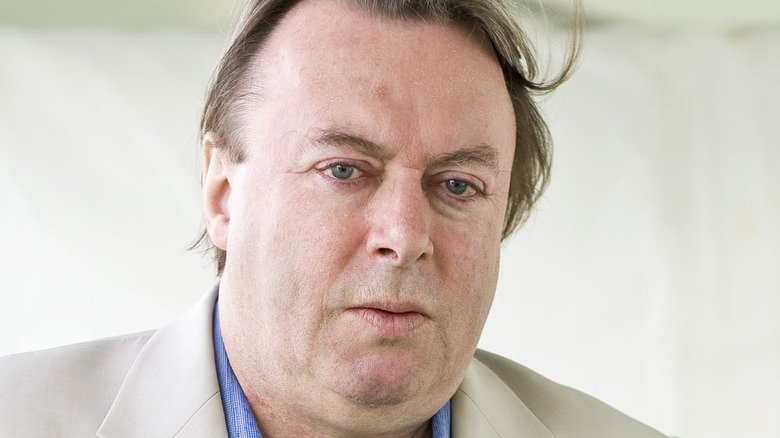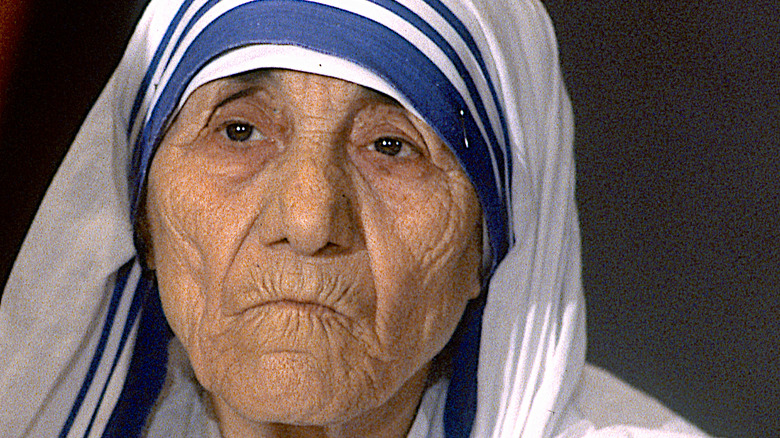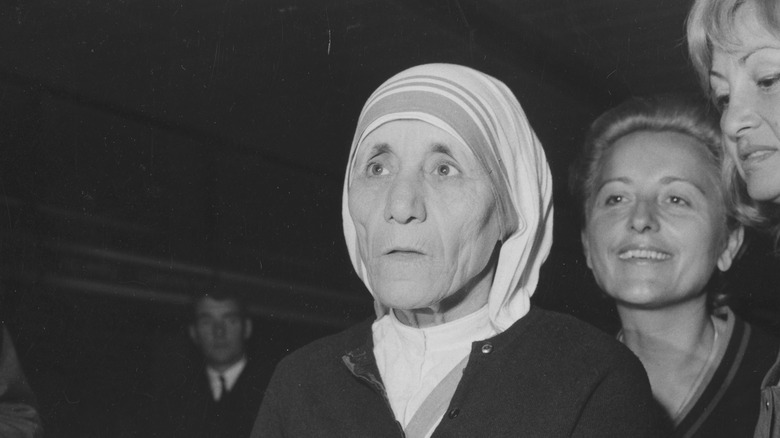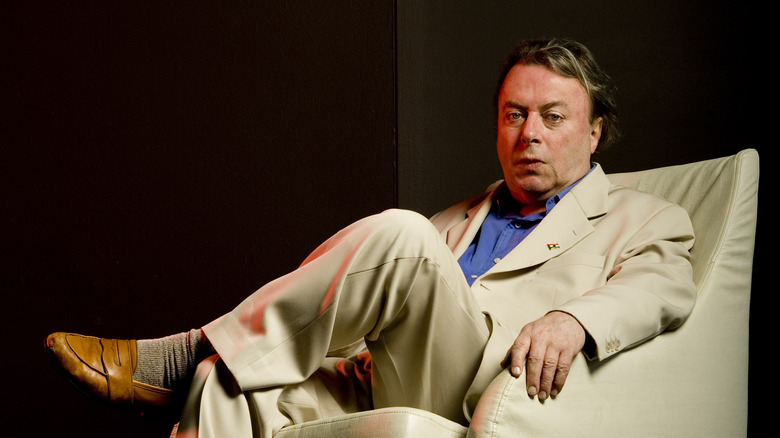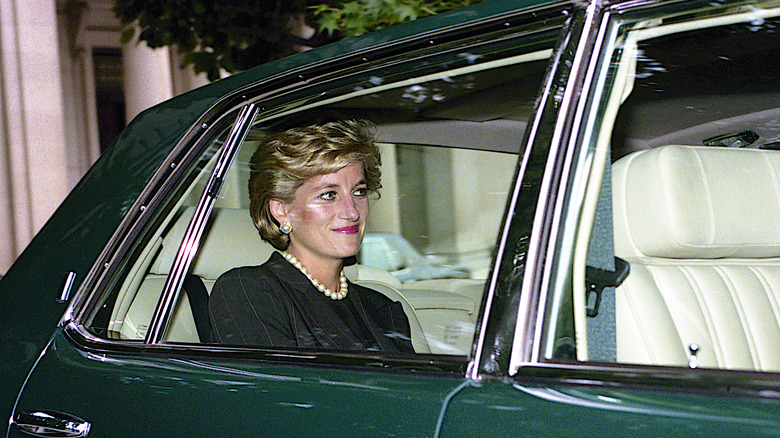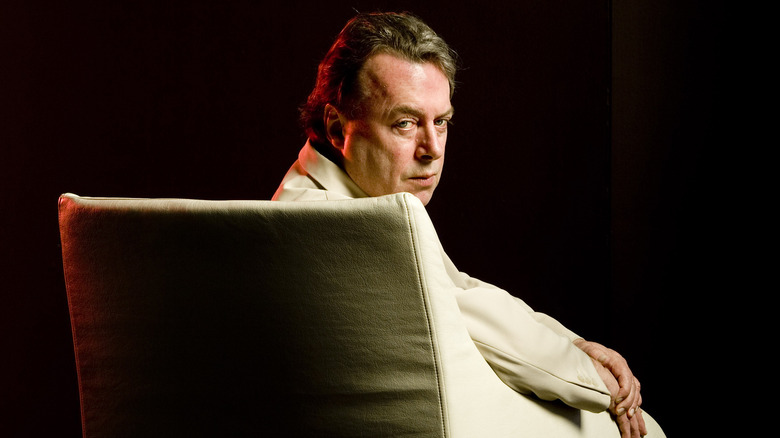Christopher Hitchens: The Man Who Called Mother Teresa A Fraud
In his memoir, "Hitch-22," the British-American writer and intellectual Christopher Hitchens recalls his visit to the Vatican, where, in front of a trio of Catholic clergymen who were gathering evidence for the canonization of Mother Teresa of Calcutta, he made the case that the woman in question — who, for many, was worthy of sainthood — was not the angel the world considered her to be.
Hitchens recalls: "I told off, as from a rosary, the frightful faults and crimes of the departed fanatic. In the course of this, I discovered that the pope during his tenure had surreptitiously abolished the famous office of 'Devil's Advocate,' in order to fast-track still more of his many candidates for canonization. I can thus claim to be the only living person to have represented the Devil pro bono."
Why Hitchens — an avowedly secular writer and public intellectual who went on to become one of the leading voices in the New Atheism movement of the 2000s — would be called to the Vatican to provide commentary on the life of a Christian icon was due to a controversial pamphlet he had published in 1995, two years prior to Teresa's death. "The Missionary Position: Mother Theresa in Theory and Practice," was itself an expansion of a 2004 BBC documentary, "Hell's Angel," in which Hitchens — opening the film with footage of Mother Teresa emerging from her private helicopter — details how Teresa became an untouchable figure within Christianity, and why the copious praise she received was ill-founded.
The truth about Mother Teresa's fame
In "Hell's Angel," Christopher Hitchens identifies the work of a fellow British journalist, Malcolm Muggeridge, as the source from which the legend of Mother Teresa as a living saint arose.
Muggeridge had visited Teresa's 'House for the Dying" in Calcutta for his own documentary, "Something Beautiful for God," first broadcast on the BBC in 1969. Muggeridge, who was a socialist turned devout Christian, praised the work of Teresa and her order of nuns in the city — which on its face, worked to provide medical support and shelter for the sick, dying, or otherwise vulnerable — and was so taken with what he had found that, in the words of Hitchens, he believed the documentary and crew had "become the divinely anointed instruments of what he claimed was the first television miracle."
The miracle in question involved the documentary itself. As recounted by cameraman Ken McMillan in "Hell's Angel," Muggeridge was so stunned by the clarity of footage obtained from within the Teresa's House of the Dying that he became convinced that the film had been blessed by "divine light," a miracle performed by Teresa herself. McMillian, however, suggests that the quality of the footage was due to the team using a newly invented Kodak film, but nevertheless, the legend of the televisual miracle became widespread news. Hitchens argues that Muggeridge's assertion that a miracle had occurred "gave birth to an icon that few since have had the poor taste to question."
'The Ghoul of Calcutta'
But Christopher Hitchens didn't limit his critique of Mother Teresa to debunking the miracle Malcolm Muggeridge told the world she had performed. In "Hell's Angel," Hitchens explores what he sees as numerous shortcomings in her charity work and activism as a religious campaigner, being so repulsed by what he presents that he describes her at one point as the "Ghoul of Calcutta." Rather than the saintly work described in the popular media, Hitchens describes the actions of Teresa and her order in Calcutta as a "cult of death and suffering depends for its effect on the most vulnerable and helpless: abandoned babies say, or the terminally ill, who supply the occasions for charity, and the raw material for demonstrations of compassion," and argues that Teresa isn't interested in helping people by providing proper medical care, but rather in providing a site for perpetual suffering.
Mary Loudon, a former volunteer at the House of the Dying, recalls in "Hell's Angel" the unbearable conditions in the building and suspicious behavior of Teresa's nurses, who reused needles without sterilizing them and refused to take ill children to the hospital, even when their maladies might be cured there.
Hitchens' criticisms of Mother Teresa were corroborated by a 2013 Canadian study, which concluded that she was "anything but a saint," and that, rather than care for the sick, her warped sense of charity meant that she believed in the sanctity of human suffering (via The Globe and Mail).
Hitchens' devout Atheism
It wasn't Mother Theresa's Christianity, per se, that Christopher Hitchens objected to, but rather the deployment of her religious convictions to allow the continuation of human suffering and to remain, in Hitchens' words, "An ally of the status quo."
But by the 2000s, Hitchens had become one of the most outspoken critics of religion in the public eye, telling the Independent in 2002 that "Christianity, Judaism, Islam — the three leading monotheisms — were the real "axis of evil" at work in the world.
Hitchens argued that his aversion to organized religion and the concept of God went beyond atheism, in that "I not only maintain that all religions are versions of the same untruth, but I hold that the influence of churches, and the effect of religious belief, is positively harmful" (via Commonwealth Club). Hitchens adopted the term "antitheist" to describe his actively hostile stance toward religion.
His controversial 2007 book, "God is Not Great," became a bestseller in both the U.S. and the U.K., and is perhaps today his most recognized work.
A vocal critic of Princess Diana
Another of Hitchens' controversial targets was Princess Diana, whose death in 1997 deeply shocked the U.K. — where the American-British Hitchens had been educated — and sent the nation into a period of intense mourning. Though perhaps it was not Diana herself, but the coverage of her death to which the writer and critic so vocally objected.
Hitchens become a well-known counterpoint to her idolatry in the U.S., thanks to a famous heated appearance on live television in which he argued that the paparazzi were not responsible for Diana's death and that she invited press scrutiny by leaking stories to the press herself. Similarly, in another appearance on C-SPAN Hitchens describes Diana as an "airhead" and a "gold-digger".
In the 1998 documentary "Diana: The Mourning After," Hitchens — who had written widely about the deceased former princess in the months following her death — argues that Diana's untimely death in an automobile accident in Paris transformed her from the "banal into the sublime," leading to an outpouring of false mourning among the British people, who now treated her like a religious icon.
Christopher Hitchens: an atheist to the end
In 2010, Christopher Hitchens was diagnosed with esophageal cancer and was forced to cancel an ongoing book tour while he underwent chemotherapy treatment. A lifelong smoker, Hitchens had given up smoking in 2008, with his wife, Carol Blue, telling the press that the writer "wants to live — live to see his political enemies defeated," according to The Washington Post, which also announced his diagnosis.
But if anyone was ever in doubt about Hitchens' commitment to his beliefs regarding religion or the authenticity of the views he espoused, both were proved in his final months, during the latter stages of his disease. Hitchens made a series of final public appearances in which he maintained his anti-theistic stance in the face of death, culminating in his receipt of the Richard Dawkins Award in 2011 at the Texas Freethought Convention on behalf of Atheist Alliance of America. At this event, Dawkins — another prominent atheist — compared Hitchens' contribution to the atheist movement to those of such luminary figures as Bertrand Russell and Thomas Payne (via YouTube).
Christopher Hitchens died on December 11, 2011, at the age of 62. Mother Teresa was finally canonized as a saint five years later.
